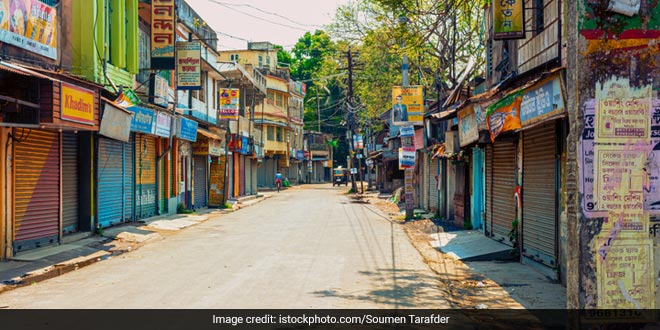Highlights
- India was under lockdown for 3 weeks till April 14
- PM Modi on April 14 further extended the lockdown till May 3
- Expert Ashish Jha thinks India’s model is ’Smart’
New Delhi: On March 24, Prime Minister Narendra Modi put 1.3 billion people of India under a strict lockdown for three weeks. On April 14, PM Modi extended the lockdown for three more weeks to slow the spread of the deadly virus that has taken lives of 1.14 lakh people globally. Has this lockdown made any impact in the country so far? Was this model of tackling coronavirus good or bad? According to the data reported by the Ministry of Health and Family Welfare (MoHFW), the lockdown has worked and may have flattened the curve in the country to some extent, especially in certain states and cities like Delhi, Tamil Nadu to name a few. NDTV’s Sonia Singh speaks with Dr Ashish Jha, Director of Harvard Global Health Institute in Cambridge, Massachusetts, on the India model of the lockdown amid the COVID-19 pandemic. Here are the things discussed:
Also Read: Are Homemade Masks Effective To Fight Coronavirus? Experts Explain
NDTV: Has India’s lockdown model worked versus the model adopted globally by the countries to slow the spread of coronavirus?
Dr Ashish Jha: All of the western democracies like Italy, United Kingdom, the USA or Sweden, to name a few, have really made a mess-up by waiting too long for the lockdown. Moreover, these countries also didn’t have a very progressive testing strategy. On the other hand, India’s lockdown model which was adopted early was very smart, though I believe that the country needs to scale up the testing much more than it already has.
There are still questions on strategies after lockdown that should be adopted, when should India end this lockdown period and how does India prevent itself from going back in the lockdown. Those are still very important questions that needed to be asked.
NDTV: What will be the best way to come out of the lockdown in India with many migrant workers staying in the country without the proper livelihood?
Dr Ashish Jha: This is a very difficult situation, particularly for a country like India where the population of poor and daily wage workers is much high. Social distancing and lockdown measures do work for slowing the spread of such infectious virus but there is a very high cost attached to such measures, especially for the poor and vulnerable people. The choice here cannot be between the lockdown or letting poor people die of hunger or due to virus. And that’s why the government here needs to put up a really progressive support plan and make sure there is food and money going to migrant or poor people in the country and then unlocking as soon as it is safe to go out. And that’s why it is important for India to develop a very aggressive strategy after the lockdown is over.
NDTV: Globally, which are the models that have worked in beating the spread of coronavirus and which have been disastrous?
Dr Ashish Jha: We know that there are some countries that have worked well in slowing the spread of this highly infectious virus. The countries like Taiwan, South Korea, Singapore, and even Japan that initially started to slow the spread and then now is having some problems..Germany has relatively done a good job and on the other hand countries like UK, Spain, Italy and the USA have not done a good job in the way they responded. If you fell behind in this war it is very hard to catch up..India has gotten ahead to cope up with the disease and now the country needs to focus on not falling behind.
NDTV: Can rising temperatures help in slowing the spread of coronavirus in India?
Dr Ashish Jha: Summers will help in slowing the spread of coronavirus in India to some extent but I am not counting that as a major source of benefit since there is no medical research or proof on this fact as of now. What will work is three important things – social distancing, getting hospitals ready and testing aggressively. As everything else is just hope and hope is not a good strategy.
NDTV: A big message for India and its policymakers on coming back to life after the lockdown?
Dr Ashish Jha: There are three things India needs to focus at this crucial time – First, even after lockdown, you will still need to keep some amount of social distancing. You just cannot go back to business routines like before. Second, India needs to focus on preparing hospitals because when you open up there will be more cases, there will be a surge in COVID-19 infected people, you need to start focussing on how will you protect and others in that circumstances. And India should also make sure there are proper gears and equipments with its doctors, nurses and healthcare workers. Thirdly, and this is very very crucial, India must scale up its testing for coronavirus. If India wants to stay open and doesn’t want to do another lockdown then the only way to do is via very extensive testing strategy.
Also Read: Coronavirus Outbreak: Understanding What Is Flattening The Curve And Its Importance




















